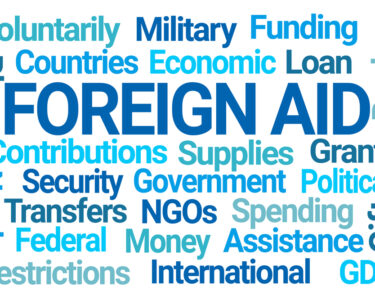Individualism. Competition. Risk aversion. Short-termism. Scarcity. Presumed expertise. Many of the norms by which philanthropy operates perpetuate the very narratives our sector seeks to change. In this series on the CEP blog, contributors who represent a cross-section of philanthropy examine some of the common ‘myths’ by which philanthropy operates and ask, “what if?”, offering approaches, interventions, and new visions for how philanthropy could operate for a more just world.
When my father died 15 years ago, it was a moment of disruption. Until that point, I had been busy bringing up four sons and, in many ways, was distanced from my father’s business as a successful entrepreneur. After his death, abruptly, my siblings and I were plunged into the role of stewarding significant wealth. And so it began: a crash course in how to navigate the mysterious structures, systems, language, and expectations of the wealth protection industry.
This all resulted in a defined ‘before’ and ‘after.’ My primary role shifted away from caregiving and toward protecting and growing the financial assets for as many generations as possible. It was a sharp learning curve, and I felt consumed by responsibility. In striving to earn legitimacy, I began to lose connection to my ‘before’ identity. In those early years, there was little room for questioning the status quo, let alone challenging it. This was due to a combination of respect for my father, duty, gender norms, fear of alienation, imposter syndrome, shame, and a skewed sense of what was permitted or professional.
However, to learn the ways of the wealth protection industry from a position of naivety can, in time, free you up to question the assumptions it is rooted in and dependent on. In the world of excess wealth, even when there is more than enough, the operating principle is, perversely, one of scarcity. The deeply embedded logic is protection and growth through diversification of investments, risk management, and tax minimization, resulting in indefinite and unchecked accumulation. Philanthropy is born from and influenced by this same mindset.
The beginning of my work in philanthropy was through Thirty Percy, a foundation that was initially born out of our family office, six years into my learning journey. I was asked to explore setting up a foundation to expand and formalize the family’s philanthropy and hesitantly said ‘yes’ though I knew nothing about foundations. Along with Jen Hooke, who worked in the family office as legal counsel, we began to learn more about how philanthropy traditionally operates.
Everyone Jen and I met was lovely and generously shared their time and knowledge. Yet, we couldn’t shake off the uneasy feeling that something wasn’t right. We observed the power dynamics, the awkward relationships between funders and grantees, the limitations of charitable giving, and a deep lack of imagination. We were convinced that there must be another way!
From this position of curiosity, and even quiet rebellion, we were fortunate to find and partner with Ten Years’ Time. They facilitated an eight-month learning series to explore “Rebalancing Economies,” where we gained invaluable exposure to alternative narratives, insights, and wisdom from the people closest to the issues. This transformative experience revealed the inequitable and undemocratic drivers of the system we operated in. It was a stark revealing of the financial system that was at once fascinating and overwhelming, and exposed us to the idea that unlearning was just as important as learning.
Our Changemaker Trust Fund’s theory of redistribution emerged from those conversations. In our present reality, business-as-usual leaders who often already possess an abundance of resources are the ones that are granted the lion’s share of opportunities to explore new ideas. Using philanthropy as a transitional tool, Thirty Percy supports visionary leaders who have been excluded from wealth systems and denied the resources they need. We make an unrestricted investment over a minimum of two years that enables these individuals to take risks, rest, dream, and build their own legacies.
I believe that we can value an inheritance — financial or otherwise — yet refuse to be limited by it. Rather than being a foil to, distraction from, or justification of the dominant model of wealth accumulation, those who have more than we need can use our advantaged position to agitate for and experiment with new forms of philanthropy that reposition the infrastructures of inequity that govern the flow of money. By redirecting financial flows in ways that are restorative and regenerative, we practice power sharing not pity, support rights not relief, address systems not symptoms, embody humility not heroism, work in solidarity not sympathy, and act for change not charity.
The wealth management system that undergirds philanthropy is made up of people, practices, and policies, which means it too can be reimagined, adapted, and evolved to facilitate change. At times I’ve been accused of being too sensitive or idealistic, but I don’t want to ignore or adapt to the harms of unchecked capitalism simply because it is the status quo. I want an honest accounting, to take responsibility, and to reclaim agency to bring about the just future I believe we all deserve.
For me, this means refusing in place, because staying put and working from within is an important form of resistance. Yet, doing this means we have to be willing to face our own continued complicity in the status quo and subsequent hypocrisies. Still, I believe that is the work we must do to re-engage with our humanity.
In his sermon “On Being a Good Neighbor,” Reverend Martin Luther King, Jr. wrote: “Philanthropy is commendable, but it must not cause the philanthropist to overlook the economic injustice that makes philanthropy necessary.” Sometimes the task we have before us is so huge that it can feel like an impossibility, but history shows that when changemakers from all walks of life come together to share our truths and puzzle things out together, we can make the impossible possible.
The wealth management system manufactures and amplifies a sense of separateness, and to be connected to something that disconnects you from what matters most is harmful, both to individuals and to the society we live in and love. Through Thirty Percy, and its many amazing partners, I have been able to reconnect to my purpose of “togethering,” to reignite a sense of belonging, of citizenship.
Through my own experience stepping into our resources, energy, and love we can collectively support a more resilient and equitable future. This is the world I would like the legacy my father left to contribute to, and it’s the inheritance I hope to leave to my sons and their families.
Louisa Mann is the chair of Thirty Percy and director at Skagen Conscience Capital.
👇Follow more 👇
👉 bdphone.com
👉 ultractivation.com
👉 trainingreferral.com
👉 shaplafood.com
👉 bangladeshi.help
👉 www.forexdhaka.com
👉 uncommunication.com
👉 ultra-sim.com
👉 forexdhaka.com
👉 ultrafxfund.com
👉 bdphoneonline.com
👉 dailyadvice.us




